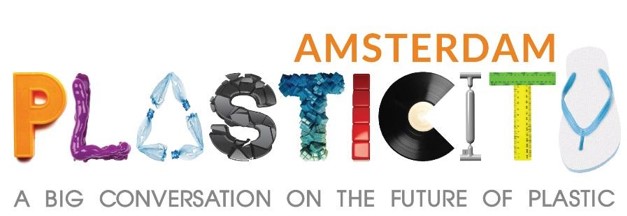Most of us recycle our plastics with the expectation that they will be recycled. But what happens after your recycling is collected? How is it possible that it can end up in landfill, incinerated, or worse, as pollution? Despite our valiant recycling efforts, globally, for every tonne of plastic we have used, less than 10% has been recycled and reused.
At the heart of the problem between what we recycle and what gets recycled is basic economics – supply and demand. Remember Economics 101? A performing economy is one in ‘equilibrium’ – where supply and demand are balanced. In the case of plastic recycling, there little demand for what we are over-supplying.
At the Plasticity Forum last week in Amsterdam, a hundred experts – manufacturers, recyclers, innovators and thought-leaders – came together on this very conundrum. The diversity of the audience at the event unlocked three key factors impeding achieving the desired equilibrium.
Quality – Between home recycling and plastic’s second-life, there is sorting (Material MRFs – Recovery Facility) and then Converters (businesses that convert the sorted plastic waste into reusable plastic). Generally, MRFs are paid by the tonnage they sort, and not the quality of their output. They can sort more if the machines run faster, but this leads to higher sorting errors. Converters get paid on the quality of their output. So, when they receive sorted plastic with other material in it, their costs of extracting the valuable material increases.
Competition – Recycled plastic competes with virgin plastic (refined oil). They are like for like on quality, however virgin plastic is usually cheaper than recycled plastic, because of additional costs incurred in converting plastic (see above) and the volatility of international oil prices. In a competitive marketplace, makers of plastic product and packaging are price sensitive.
Cross-border trading – In the past, plastic waste was exportable. We exported to developing countries, but with the recoverable plastic, they also received non-recoverable waste. Recently, Asian nations have rejected this trade and governments globally support restricting the trade of waste plastic. However, if the resources in plastic waste cannot be traded internationally for extraction, each country will be faced with the gigantic challenge of funding full recovery – and many will fail.
Should we give up on recycling? Is it a lost cause? The answer from these experts is a resounding NO. This is not for altruistic reasons alone. The solutions focused audience, identified successful models bucking the trend, including: improving sorting quality with advanced labelling technology; identifying particular waste sources such as fishing nets and converting to quality textiles; and, commercially viable 100% recovered plastic packaging.
There is more… there is optimism. Action, such as the Dutch government’s Plastic Pact NL, is stimulating demand by requiring minimum recycled content targets for packaging. Innovators and entrepreneurs are emerging with viable solutions. But we don’t have time to waste. Governments can assist, however, business leaders and communities must unite in a realistic conversation about preventing our plastic recycling becoming pollution.
Douglas Woodring is Founder of Plasticity Forum, and the 12th global forum took place in Amsterdam on 20 June. Plasticity is the global forum bringing about applied plastic circular economies. Doug is also Founder of Ocean Recovery Alliance, a solutions focused NGO dedicated to a better Ocean. He is a sustainability economist with more than 20 years’ business, finance and circular economy experience across the globe.
Trish Hyde, Plasticity Director, works with Doug curating the unique and insightful global forum. Trish is also founder of PlastX (a plastics circular economy startup) and a business/NGO advisor supporting circular economies. She has a c-suite career specialising in brand sustainability and authenticity.




